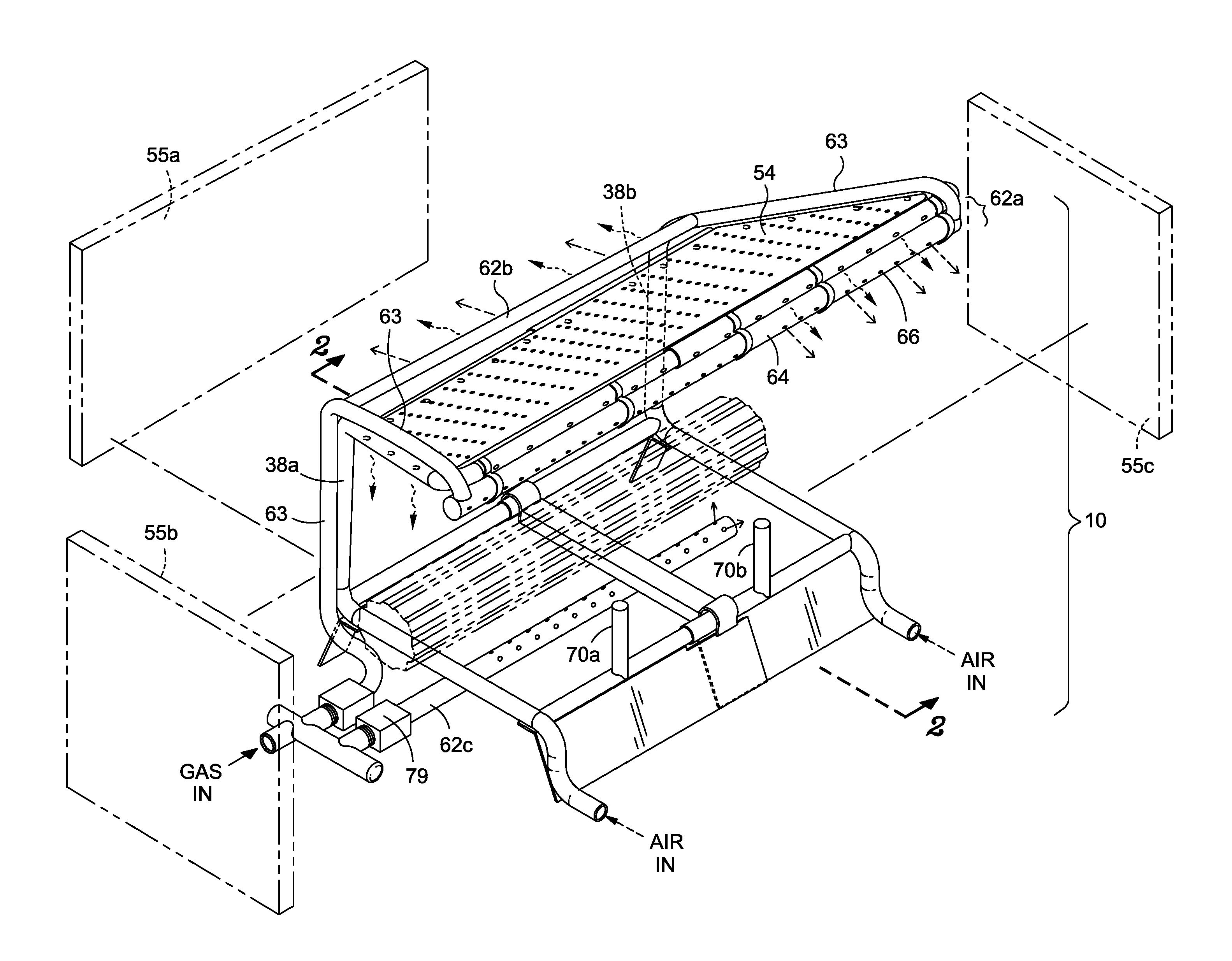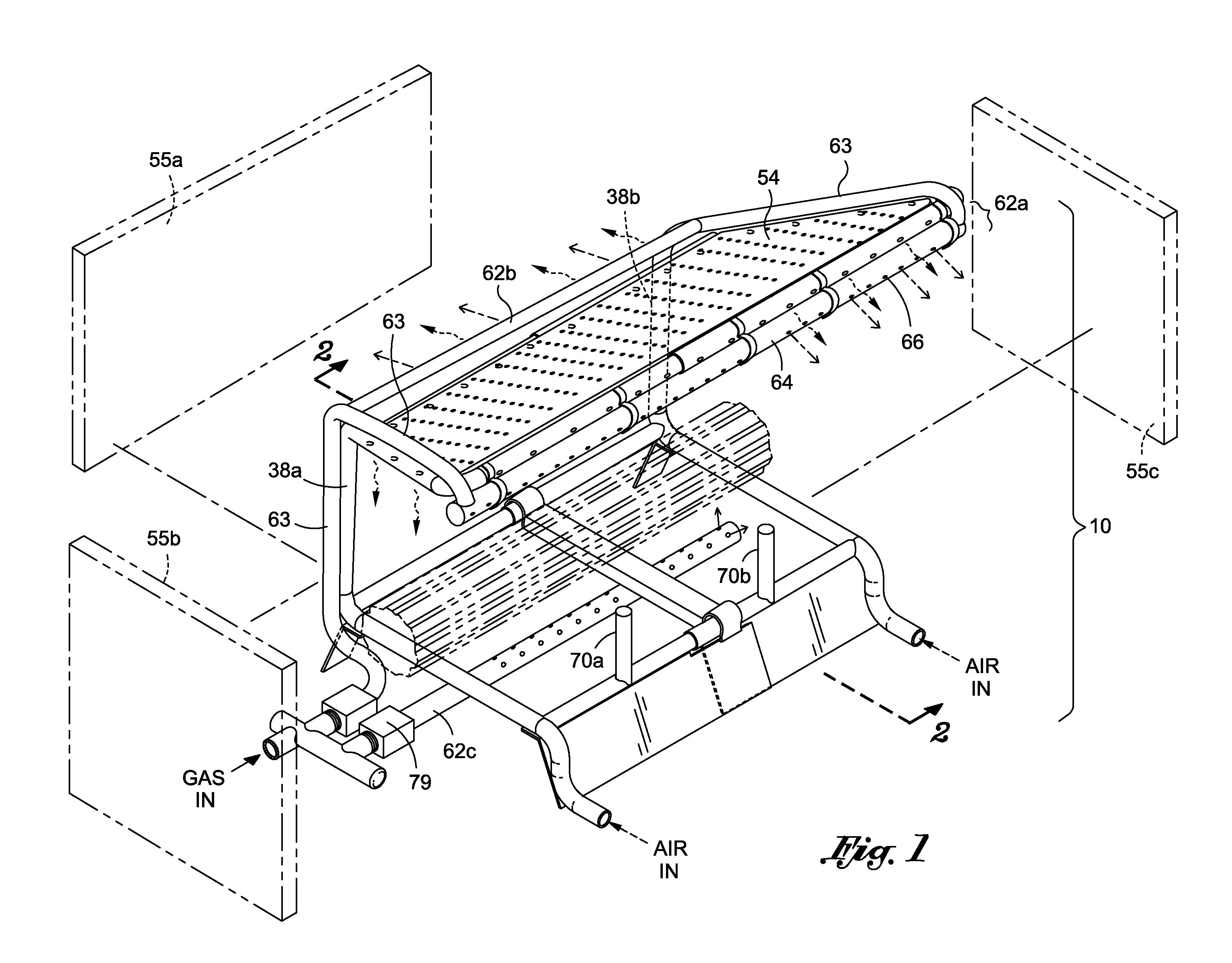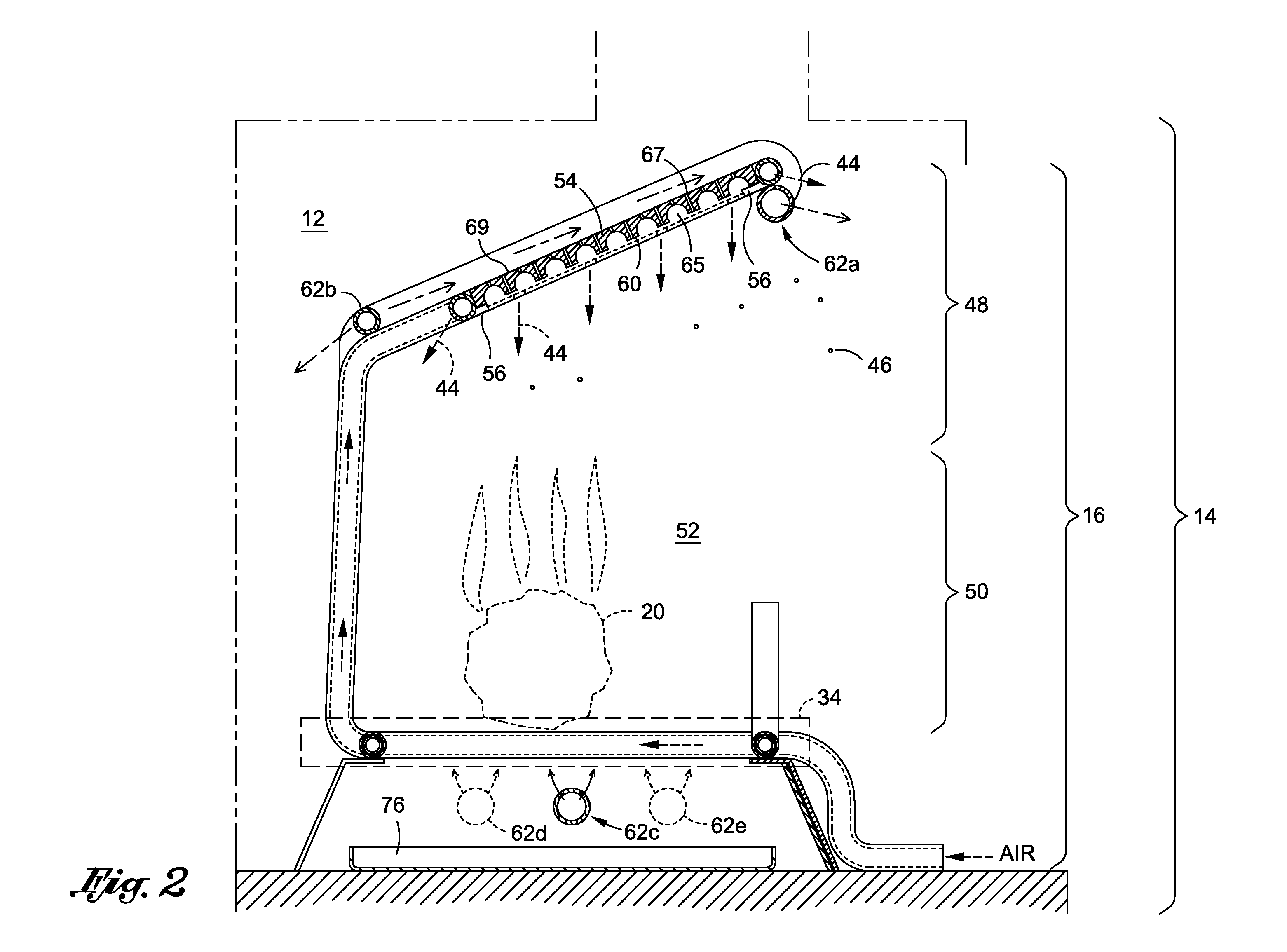Fire Grate for Enhanced Combustion with Vertical and Horizontal Expansion Sleeves
a fire grate and expansion sleeves technology, applied in the direction of gaseous heating fuel, stoves or ranges, ways, etc., can solve the problems of harmful to humans and the environment, increased harmful emissions, and large emissions of fireplaces, so as to reduce harmful emissions, reduce harmful emissions, and improve emissivity. characteristics
- Summary
- Abstract
- Description
- Claims
- Application Information
AI Technical Summary
Benefits of technology
Problems solved by technology
Method used
Image
Examples
Embodiment Construction
[0031]Referring now to the drawings, an improved fire grate 10 for enhanced combustion is shown. The improved fire grate 10 may be disposed within a combustion chamber 12 (see FIG. 2) of a fireplace 14. The improved fire grate 10 introduces oxygen rich air to a secondary combustion zone 50 of the combustion chamber 12, retains heat within the combustion chamber 12 to increase a temperature of the combustion chamber 12, encourages mixing of oxygen rich air with oxygen starved combustion gas stream, and increases residence time of the combustion gas stream for the purpose of reducing harmful emissions during fireplace use.
[0032]Referring now to FIG. 3, an exploded view of the improved fire grate 10 is shown. The improved fire grate10 may be fabricated from a tubular design made from a cost effective material (e.g., steel, aluminum ceramics, etc.) of appropriate temperature and chemical resistance characteristic. The fire grate 10 may have an adjustable width 22. To this end, the impro...
PUM
 Login to View More
Login to View More Abstract
Description
Claims
Application Information
 Login to View More
Login to View More - R&D
- Intellectual Property
- Life Sciences
- Materials
- Tech Scout
- Unparalleled Data Quality
- Higher Quality Content
- 60% Fewer Hallucinations
Browse by: Latest US Patents, China's latest patents, Technical Efficacy Thesaurus, Application Domain, Technology Topic, Popular Technical Reports.
© 2025 PatSnap. All rights reserved.Legal|Privacy policy|Modern Slavery Act Transparency Statement|Sitemap|About US| Contact US: help@patsnap.com



